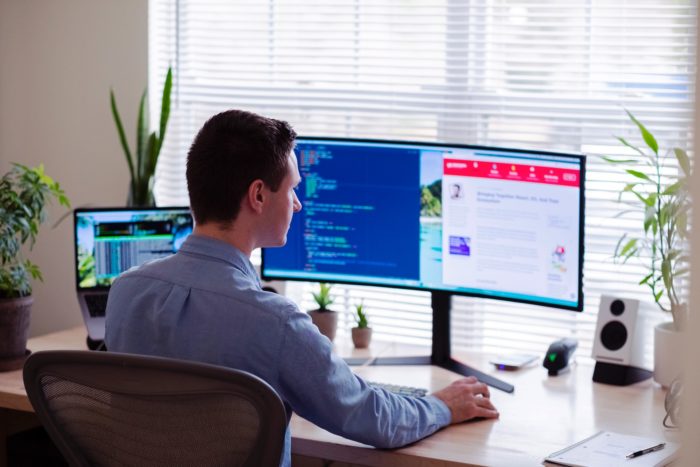
Self-isolation means more digital communication and increased gadget use. More remote communication leads to more stress. And chronic stress causes burnout. How to prevent burnouts when working from home?
During the COVID-19 pandemic the role of telecommunication has significantly increased. A vast majority of the population of the developed countries work, study and even talk to friends and family via zoom, skype, whatsapp and so on. We just can’t live without gadgets anymore. At the same time, sitting too long in front of the screen enhances anxiety and stress, no matter if it’s your laptop or smartphone.
As a result, you are confronting even more stress due to all the coronavirus restrictions added to the extremely long screen time’s consequences.
In the end all this accumulated pressure and anxiety very likely lead to emotional exhaustion and burnout. The latter is a syndrome caused by chronic stress at work you can’t cope with.
Fortunately, there are some helpful tips for us all on how to reduce anxiety and cope with digital burnout.
Get Informed

Forewarned is forearmed. Read about the problem, symptoms and treatment. There are enough reliable sources on digital burnout and its causes and consequences out there. And inform your folks about it.
It’s also recommended to employers to take precautions and encourage their employees to get informed, self-reflect and monitor their emotional state, productivity and burnout risks when working online too long by communicating the possible problem to them.
Push the Pause Button
Glare strains your eyes too much. The best remedy here is to take breaks to prevent your eyesight from getting worse.
Looks like the next health system challenge is going to be the dramatic decrease of eye health among the population. So, make sure you don’t stare at the screen for hours in a row.
Use Podcasts
You don’t necessarily need to see the person you’re talking or listening to. Especially if it’s a school lecture. If there is no important visualization, such as a presentation, close your eyes and concentrate on listening. Thus, your eyes will have some rest.
Meditate and Do Breathing Exercises

This is one of the tips we give quite often. That’s just because it works. Between zoom meetings and helping your kid do the homework try to find 5 minutes to switch off your mind. You normally always have time to go to the bathroom. And smokers ALWAYS find time to smoke another cigarette even if they are extremely busy.
Yoga, meditation and breathing exercises have been proved to be effective in cases of chronic stress and even anxiety and depression. So, why not use this knowledge?
Get Rid of Bad Habits
Stressed smokers smoke even more, while smoking itself is linked to depression, suicidal thoughts and bad school performance.
Caffeine intake also contributes to developing psychiatric conditions, such as anxiety. Kicking such bad habits might reduce their accumulative effect on stress and burnout caused by staying online and excessive devices use.
Take Extra Care of Your Kids

Please, pay particular attention to your kids. Ask them how they feel. Observe. We all have become a whole bit more stressed and irritated because things have gotten unpredictable. And with all this inability to plan and control your own life, we often don’t notice the problems our children have. They are also stressed. But how much is too much? They are too young and can’t self-reflect and tell you: “Mama, I have a burnout”. At the same time this could also happen to a 10-year-old and have as serious consequences as in an adult.
Sleep and Diet
Just a small reminder: sleep enough (especially important is deep sleep) and follow a healthy diet to reduce the risk of digital burnout. But I guess, that’s nothing new to you.






